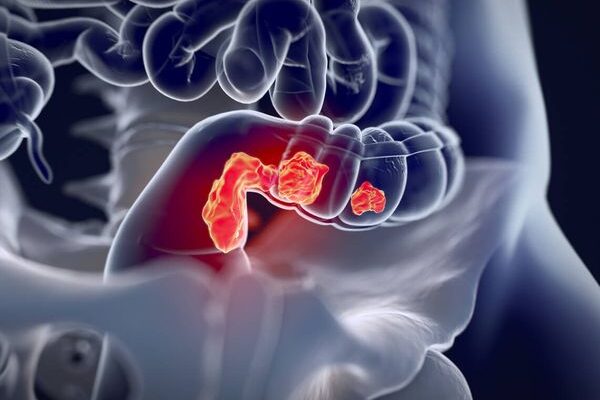Colorectal cancer (CRC) is the second leading cause of cancer death in the United States.
There is compelling evidence that screening to detect CRC early to find and remove precancerous polyps can reduce CRC mortality. However, screening has associated harms, including procedural complications, and inherent limitations. For example, colonoscopy, the most common screening tool in the US, is less effective in preventing cancers of the right, or ascending side, of the colon compared with cancers of the left, or descending, side of the colon.
Moreover, only 60% of US adults recommended for screening actually follow through. Even under the best circumstances, screening is resource-intensive, requiring time, equipment, and a trained doctor to perform the procedure, and cannot be widely implemented in many parts of the world. Thus, alternatives to screening to effectively prevent CRC are a high unmet need.
What are alternatives to screening for prevention of colorectal cancer?
Adherence to healthy lifestyle habits, including maintaining a healthy body weight, keeping physically active, and abstaining from tobacco, can reduce risk of CRC in all individuals. These habits also help prevent other chronic health conditions.
In addition to lifestyle, chemoprevention — the use of agents to inhibit, delay, or intercept and reverse cancer formation — also holds significant promise. The ideal chemopreventive agent, or combination of agents, requires the benefits to outweigh the risks, especially since effective prevention likely requires long-term use. Many different agents have been proposed and studied over the last several decades.
Study suggests aspirin may help prevent colorectal cancer
In an article published in the journal Gut, researchers performed a systematic review, analyzing data from 80 meta-analyses or systematic reviews of interventional and observational studies published between 1980 and 2019, examining use of medications, vitamins, supplements, and dietary factors for prevention of CRC in people of average risk.
The authors found that regular use of aspirin, nonsteroidal anti-inflammatory drugs (NSAIDs) such as ibuprofen (Advil, Motrin) or naproxen (Aleve), magnesium, and folate is associated with decreased risk of CRC.
In addition, high consumption of fiber, fruits and vegetables, and dairy products also appears to be associated with reduced risk.
In contrast, heavy alcohol intake and high red or processed meat consumption is associated with an increased incidence of CRC. There was no evidence of any protective benefit for tea, coffee, garlic, fish, or soy products.
Link: https://www.health.harvard.edu/blog/can-i-take-something-to-prevent-colorectal-cancer-2021011321751
Source: Harvard Health Publishing
Date: January 13, 2021
Author: Andrew Chan, MD, MPH, Contributor
Photo: iStock
Nutrigenomics Institute is not responsible for the comments and opinions included in this article






